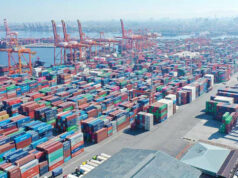CONSUMERS in Indonesia and the Philippines are spending more on skin care and hair products amid buoyant disposable incomes, with the two countries driving regional growth in the segment, GlobalData said.
The cosmetics and toiletries (C&T) industry in the Asia-Pacific region was valued at $119.9 billion in 2017, driven by growing markets in the Philippines and Indonesia.
“Rising disposable income and image consciousness among the consumers are boosting demand for cosmetics and in turn translating to a surge in spend and market opportunities in the Asia-Pacific (APAC) region, particularly in Indonesia and the Philippines,” GlobalData Consumer Research and Analysis Director Sumit Chopra was quoted as saying in a statement.
Filipino customers in particular were seen favoring hair care products, which was the largest segment of the country’s C&T industry last year. GlobalData noted that 77% of Filipinos rely on time-saving products and services, pushing demand for hair products with multiple benefits.
“Products with natural ingredients are gaining popularity in the Philippines as they are perceived to be better for you. Filipinos also like to experiment with new and unusual scents when choosing beauty/grooming products,” Mr. Chopra said.
The entire regional hair care sector was valued at $24 billion in 2017.
Meanwhile, skin care sector was the largest single segment with a value of $64 billion, with a compound annual growth rate projected at 6.3% from 2017 to 2022.
The demand for skin care products was most pronounced in Indonesia, particularly anti-aging products.
“Image-conscious Indonesians are increasingly looking for anti-aging and other products which enhance their appearance, prompting manufacturers to launch products with anti-aging claims. Rising disposable incomes are boosting demand for premium cosmetics,” Mr. Chopra said.
GlobalData also noted that consumers are considering traditional and religious considerations behind the product, including halal certification in Indonesia.
“While introducing cosmetic products in APAC, manufacturers need to take the traditional/religious and ethical beliefs of a country into consideration. Capitalizing on the rising standard of living in the region, they should launch premium products, which offer an enhanced experience,” Mr. Chopra said. — Arra B. Francia



